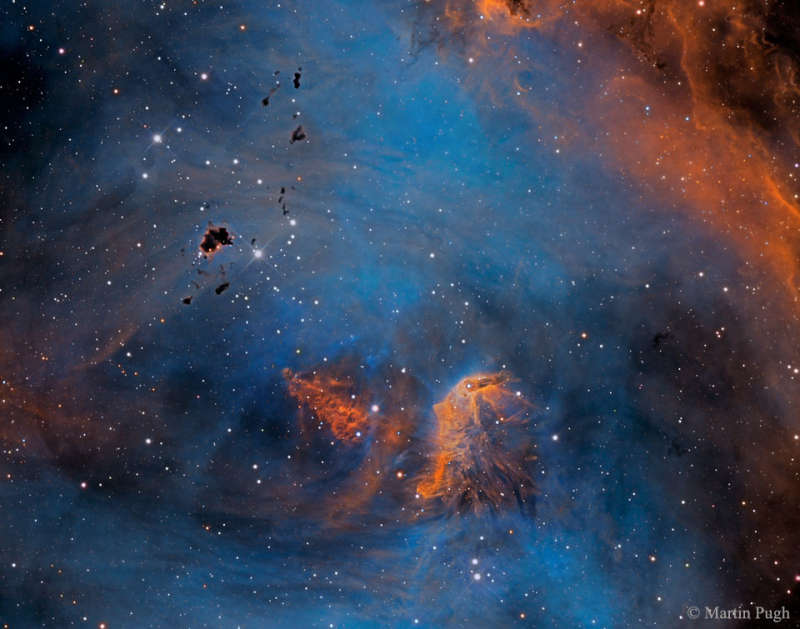Credit & Copyright: Martin Pugh
Explanation:
The eggs from this gigantic chicken may form into stars.
The featured emission nebula, shown in scientifically assigned colors, is cataloged
as
IC 2944 but known as the
Running Chicken
Nebula for the shape of its greater appearance.
Seen toward the top of the image are small, dark
molecular clouds rich in obscuring
cosmic dust.
Called Thackeray's Globules for their
discoverer,
these "eggs" are potential sites for the
gravitational
condensation of new stars,
although their fates are uncertain as they are also being rapidly
eroded away
by the intense radiation from nearby young stars.
Together
with patchy glowing gas and complex regions of reflecting dust,
these massive and energetic stars form the
open cluster
Collinder 249.
This gorgeous skyscape spans about 60 light-years
at the nebula's estimated 6,000
light-year distance.
1999 2000 2001 2002 2003 2004 2005 2006 2007 2008 2009 2010 2011 2012 2013 2014 2015 2016 2017 2018 2019 2020 2021 2022 2023 2024 2025 |
Январь Февраль Март Апрель Май Июнь Июль Август Сентябрь Октябрь Ноябрь Декабрь |
NASA Web Site Statements, Warnings, and Disclaimers
NASA Official: Jay Norris. Specific rights apply.
A service of: LHEA at NASA / GSFC
& Michigan Tech. U.
|
Публикации с ключевыми словами:
IC 2944 - эмиссионная туманность - глобулы - звездообразование
Публикации со словами: IC 2944 - эмиссионная туманность - глобулы - звездообразование | |
См. также:
Все публикации на ту же тему >> | |
